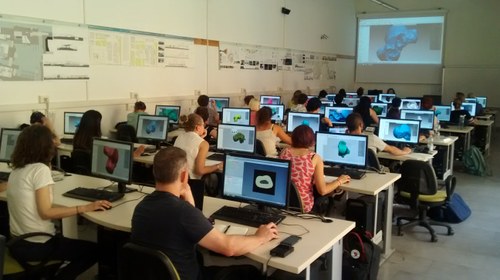Summer School 2019

Virtual environments are currently pivotal to a number of research fields including anthropology, archaeology, the study of cultural heritage, medicine, and dentistry. In particular, new technologies for acquiring and post-processing three-dimensional (3D) image data, originally developed for medicine and engineering, have been increasingly applied to anthropology and archaeology for data collection, preservation, and analysis. Three-dimensional digital models can be considered as faithful copies of original data that facilitate replicability of experiment and reproducibility of results, and can be used for a broad set of non-invasive analyses comprising pure metrics, morphological analysis, tissue analysis and novel approaches to virtual integration and restoration. All these applications have great potential and disclose unseen opportunities for the preservation and dissemination of our biocultural heritage.
The Summer School is designed to comply with the increasing demand for researchers with different and cross-disciplinary backgrounds who are able to manage virtual environments and to exploit the analytical potential of 3D data in a variety of scientific endeavours. The courses are suitable for undergraduate/graduate students, PhD students, post-doctoral researchers, and professionals in the field of anthropology, archaeology, medicine and dentistry who are interested in developing fundamental skills in 3D data acquisition and post processing. Participants will acquire specialised notions on the different kinds of technology employed in 3D data acquisition (e.g., surface scans, X-ray computed tomography – CT), and on a variety of methods for post processing surface data (such as segmenting/visualizing image data from (micro)-CT sources) to create and analyse 3D digital models.
For this purpose, the School is articulated in two classes, each of which will address specific subjects and will provide access to complementary skills. The classes can be attended independently or in sequence, and both classes will involve lectures and practical sessions conducted and supervised by experts in the field.